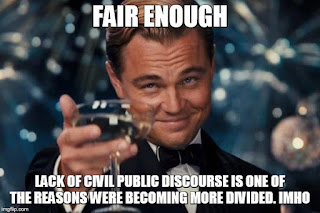"Climategate": A Product of Post-Truth
"Climategate:" the 2009 email scandal involving scientists from the University of Anglia's Climate Research Center. Thousands of emails sent between the scientists were suddenly hacked and released to the public. Harmless emails between coworkers were suddenly turned into political weapons, used to push a climate-change skeptic agenda. Accentuated by the media, this email hacking turned into a scandalous event that caused much room for concern.
The reality of the emails were quite different than what was shown in the media. The media presented the emails as a deception of climate change, proof that human activity does not cause climate change, and a conspiracy. However, the emails proved none of these claims. The emails were frank conversations between scientists about the severity of climate change, not a climate conspiracy.
So why did these emails get manipulated? I believe the reason for this is our post-truth world. News sources need to have viewership. People are more likely to watch a news channel if they are entertaining and grab your attention. A story about the hacking of climate scientists' emails which state that human activity does not cause climate change is much more likely to get viewership than a story about the hacking of climate scientists' emails in which they simply speak about science.
This type of news manipulation contributes to our post-truth world. A world in which truth is not truth and entertainment trumps facts. "Climategate" shows just that: a world where biases and disinformation fill our news channels, and as a result, our heads.

It is interesting how when we are presented with these emails that were leaked, instead of reading them ourselves and making our own inferences, we look to news stations and reporters to make these conclusions for us. We could avoid this whole issue if we could as a whole society analyze documents and make objective inferences on them instead of relying on biased media coverage. Also, knowing the truth now those media outlets that presented the emails as climate conspiracy conversations trust that we will not read the emails ourselves so they have the opportunity to skew the news the way they want us to see it.
ReplyDeleteMakenzie,
ReplyDeleteI like how you highlighted that this leak of emails was covered in a way to support a certain point of view or agenda (that of climate skeptics). I also shows how the media informs the general public which can sometimes misinform policy or other things that affect everyone even those who do not watch television news or read newspapers. In terms of "climategate" it could unintentionally mislead those who believe everything is a conspiracy that they are correct in their beliefs. Obviously, this particular belief is untrue and reenforcing it is dangerous for the general public.
The Climategate scenario is interesting because the scientists who had their emails hacked were told to not say anything and to avoid publicity, but how could they just stand by and watch their work get tarnished? If they had not made any remarks, it would just make us believe that they truly meant what they said. Revealing that the context of the emails was being taken apart and revealed in a way that would specifically tarnish their image helps society realize that these scientists are not criminals. It is a tricky thing. Everyone is very quick to judge and it can be hard to avoid criticism, even if the truth is being told.
ReplyDeleteEverytime I think back on that it astounds me how brazen the climate change deniers were with their bullshit. They find, like, two phrases in the thousands of leaked emails that, when taken from their context, seem like damning evidence. They are out there repeating it over and over when it can be proven to be bullshit by showing the emails before and after it. The smallest bit of context can dismantle their argument, but no one seems to care. Or rather, the people who leaked the emails only needed people to care for a few weeks. They didn't need to tear down the people's faith in scientists, they just needed them to doubt for a short time.
ReplyDeleteWhich is something we don't talk about all that often. Timing is super important to post truth. Even if public opinion eventually sways against you, as long as you accomplished what you needed, it doesn't matter. It doesn't matter that people eventually realized that climategate was a sham because it allowed people in power to ignore the problem that much longer.